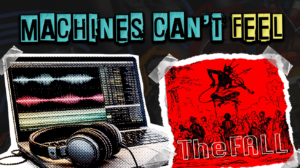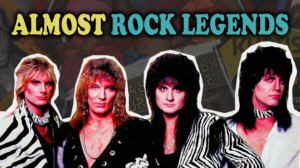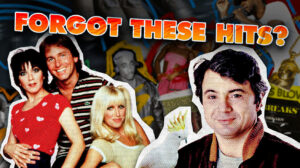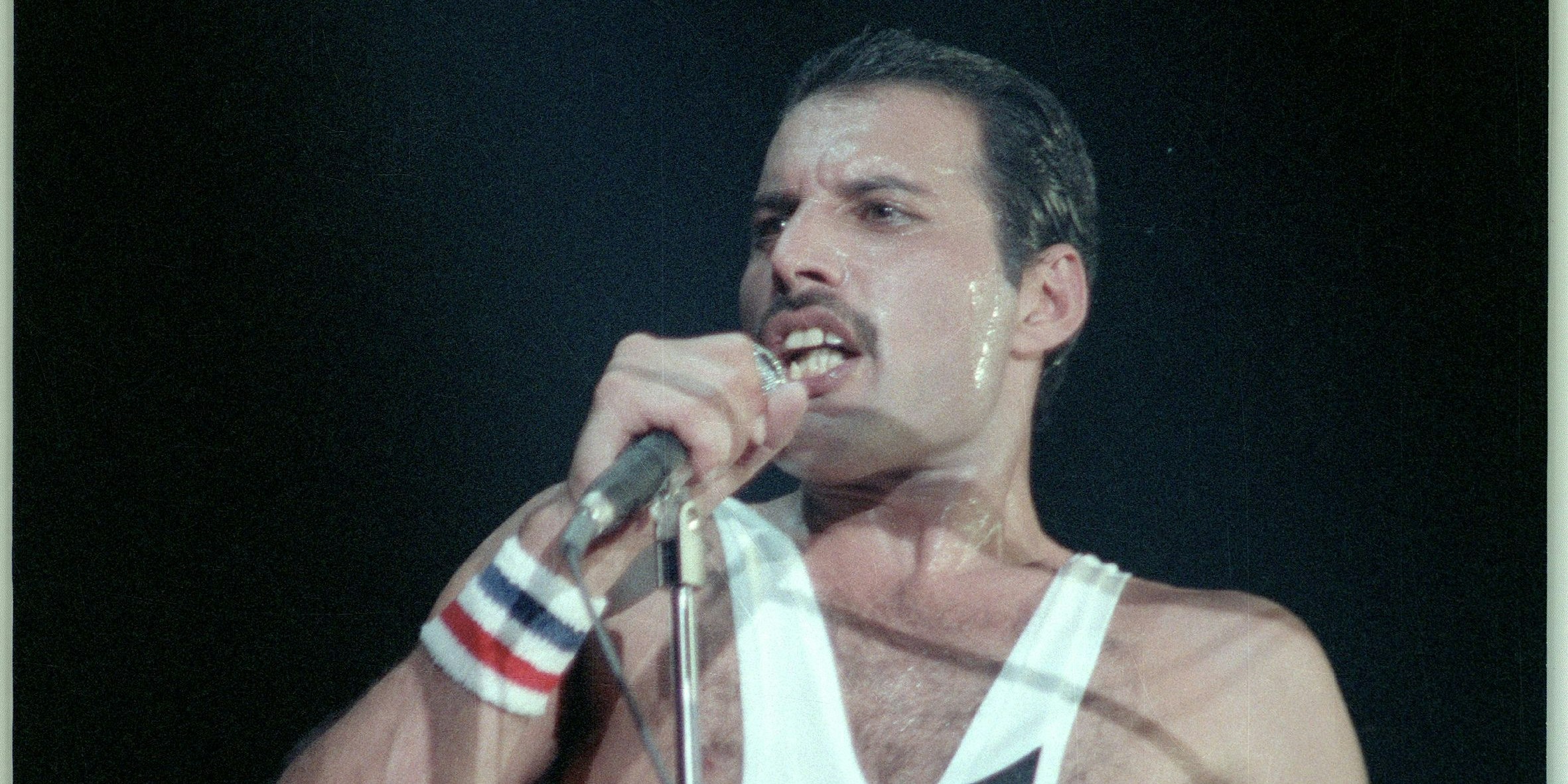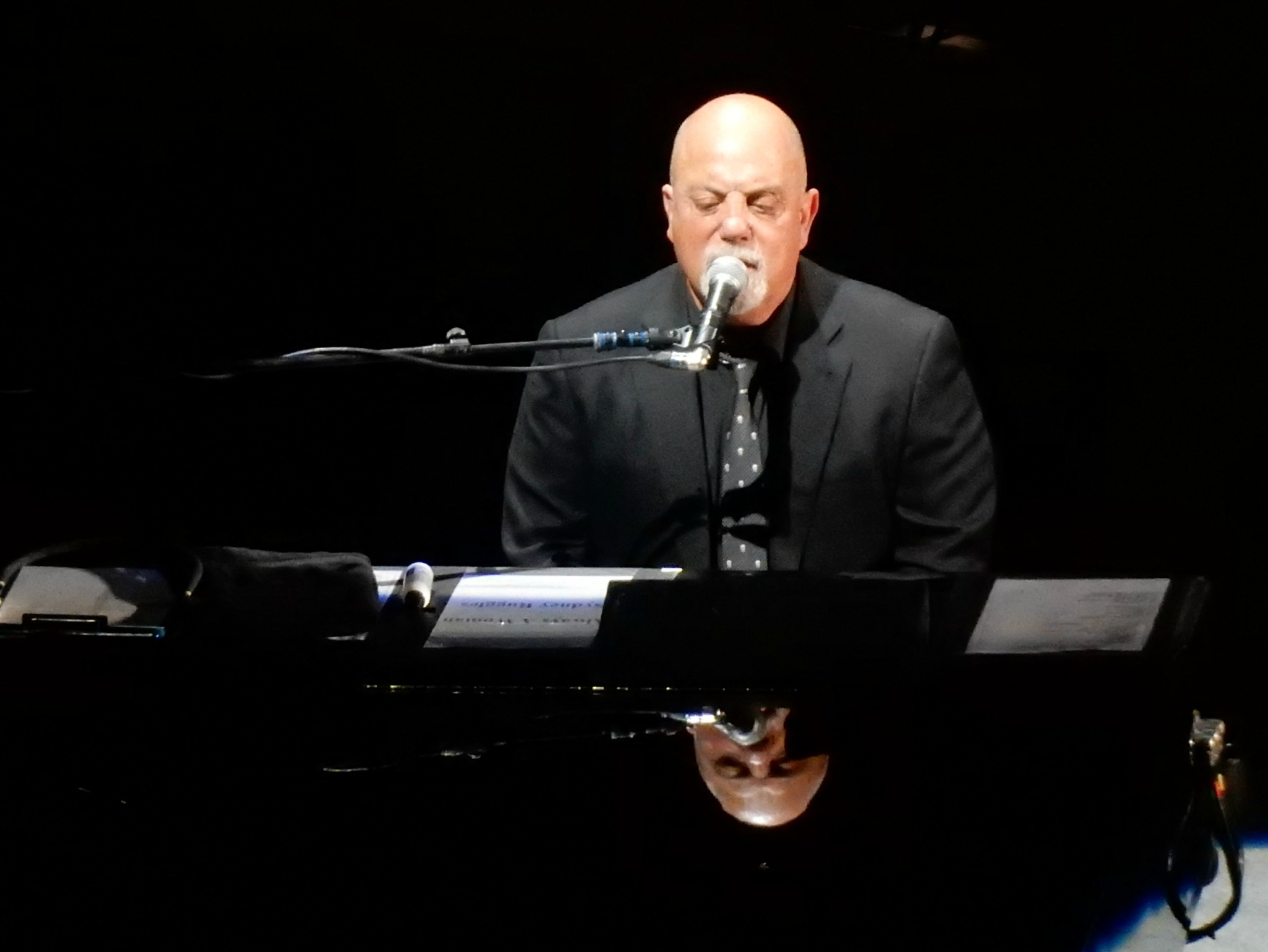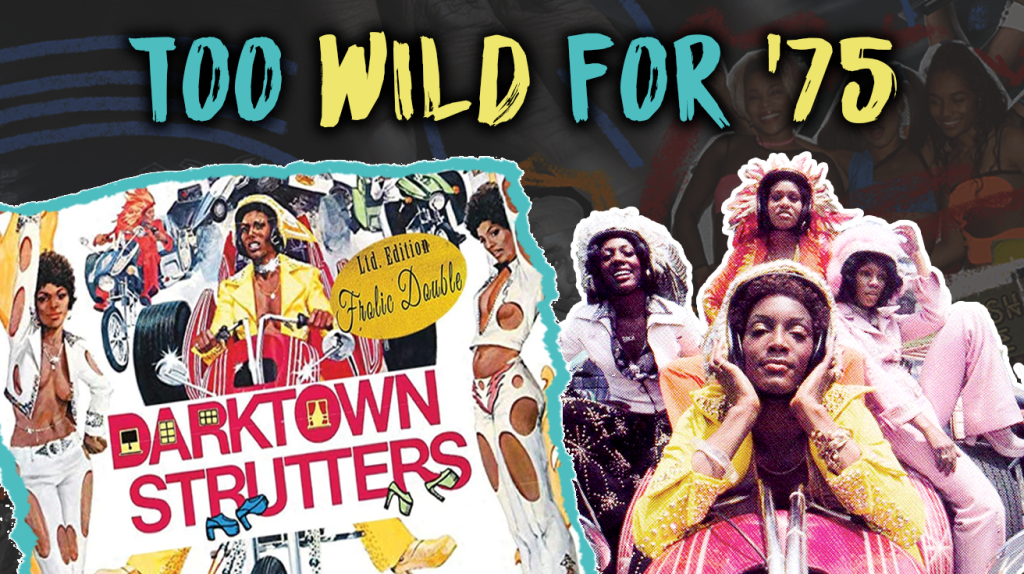
The 1970s gave us films that were raw, rowdy, and often ridiculous—and their soundtracks matched the madness note for note. Directors chased danger, swagger, and grooves heavy enough to rattle theater walls, while musicians treated every cue like their shot at immortality. What came out were records with basslines sharp enough to cut glass and horn sections built to start fights on the dance floor.
Crank the volume—these are 14 of the most notorious soundtracks that turned exploitation cinema into a jukebox of pure sonic rebellion.”
14. Black Caesar (1973) – James Brown
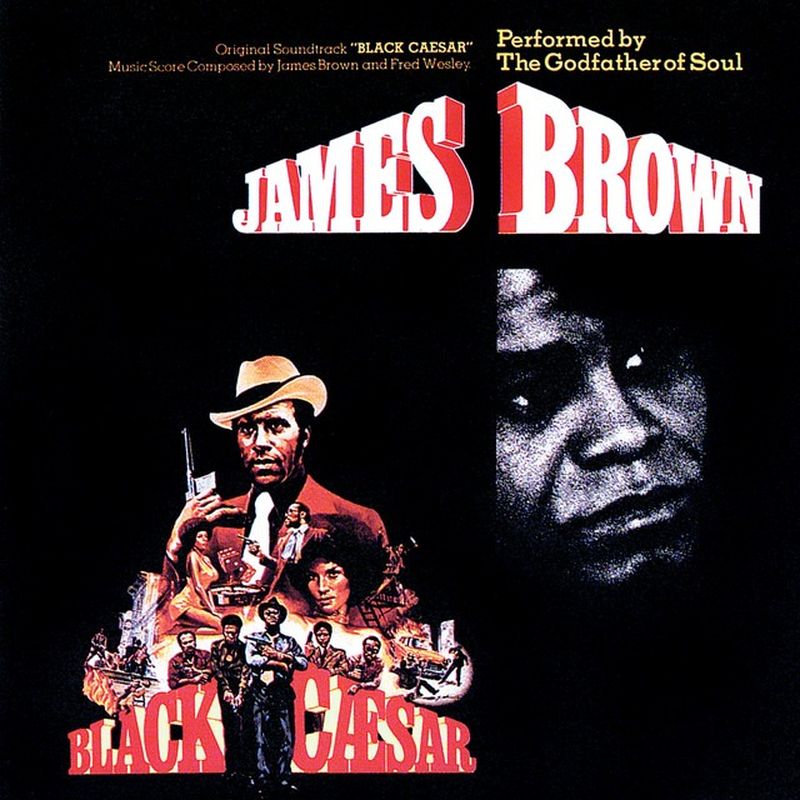
James Brown scoring a gangster flick feels as natural as peanut butter meeting jelly—inevitable and perfect. The Godfather of Soul delivered funk manifestos that became his signature revenge anthems, though his rejected score for the sequel would later become “The Payback” album. Brown didn’t just write music for Fred Williamson’s crime boss; he channeled every ounce of street credibility into pure sonic fury that made violence sound like poetry.
“Down and Out in New York City” captures urban desperation with a groove so hypnotic it makes poverty sound almost glamorous. Brown recorded these tracks during his imperial phase, when every breath he took turned into rhythm and every heartbeat became a backbeat. The soundtrack proved exploitation films could launch legitimate hit records that lasted longer than the movies themselves—musical artifacts that outlived their melted volume knob origins.# 14 Most Notorious Soundtracks from 1970s Exploitation Films
The decade’s sleaziest movies accidentally birthed some of its most innovative music. While respectable studios were hiring composers who played it safe, exploitation filmmakers were throwing budgets at musicians with nothing to lose and everything to prove. Picture this: directors demanding “something that sounds dangerous,” budgets tighter than tour bus bunks, and composers treating every cue like their shot at immortality. These soundtracks didn’t just complement the chaos on screen—they cranked it past eleven and melted the volume knob into pure sonic rebellion.
13. Dolemite (1975) – Arthur Wright
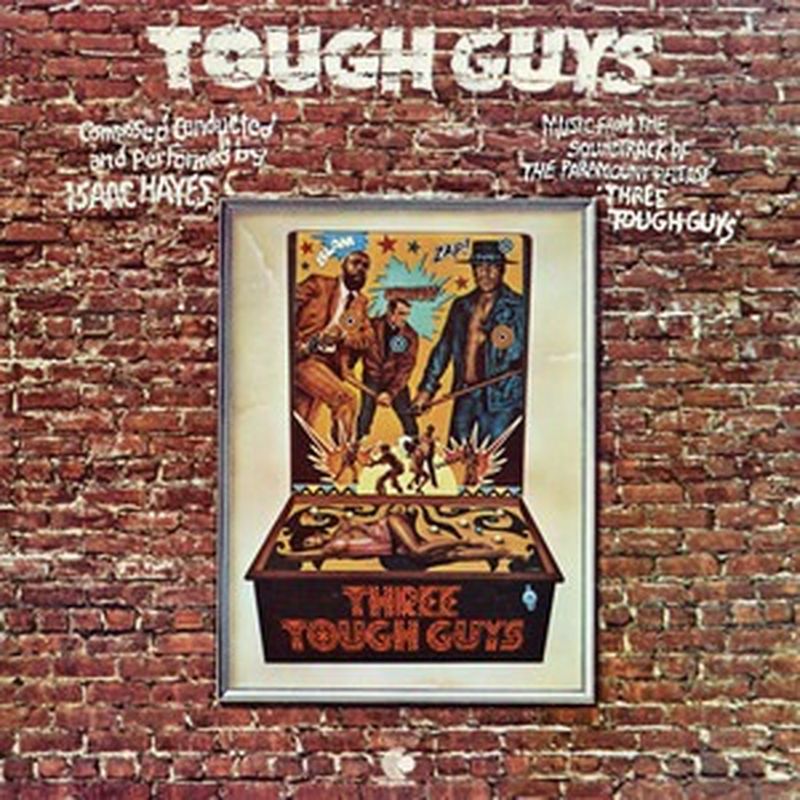
Arthur Wright scored Rudy Ray Moore’s comedy-action fever dream with music as outrageous as Moore’s rhyming insults. The soundtrack captures the film’s DIY spirit—like recording in someone’s cousin’s garage and somehow creating magic through sheer audacity and caffeine. Wright’s compositions swing between blaxploitation funk and comedy timing, perfectly matching Moore’s larger-than-life persona that made normal seem boring.
“Dolemite Theme” sounds like Parliament-Funkadelic’s rowdy younger brother who spent too much time in comedy clubs and learned to roast from the best. Wright worked with minimal budget but maximum enthusiasm, creating cues that enhance Moore’s verbal acrobatics without competing for attention. The music feels spontaneous and slightly chaotic, exactly what a Dolemite movie demanded from anyone brave enough to attempt it.
12. Black Belt Jones (1974) – Dennis Coffey & Luchi De Jesus
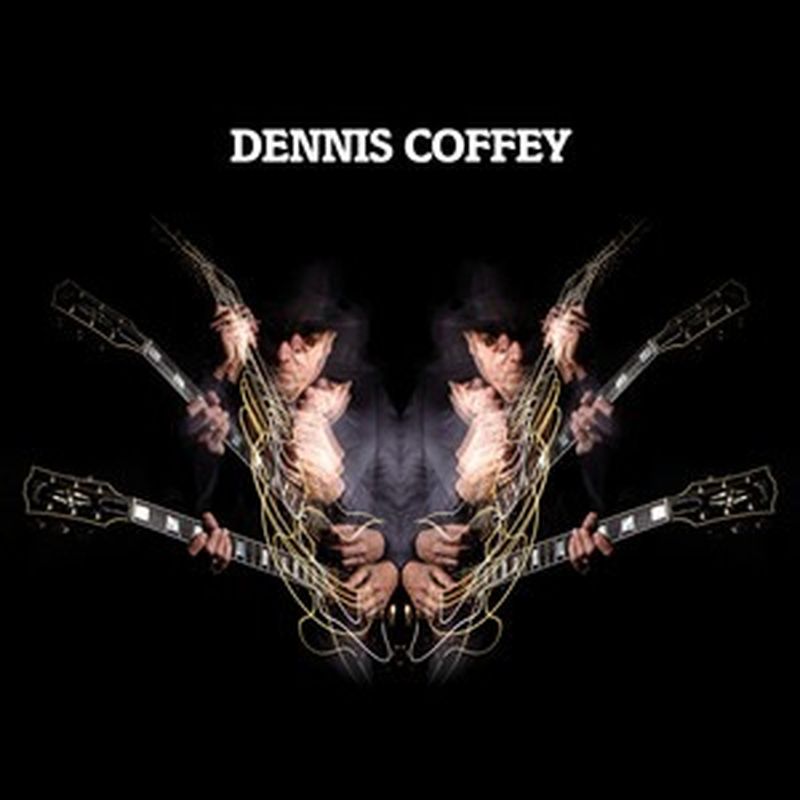
Dennis Coffey and Luchi De Jesus created a martial arts funk fusion that kicks harder than Jim Kelly’s screen fighting. “Black Belt Jones Theme” combines Coffey’s psychedelic guitar work with De Jesus’s jazz sensibilities, producing music that sounds like Bruce Lee jamming with Sly Stone in a dojo equipped with Marshall stacks. The collaboration works because both composers understand rhythm as violence and melody as movement.
Their partnership creates musical martial arts—compositions that punch, kick, and flow like choreographed combat set to a backbeat that would make TikTok fight videos jealous. The soundtrack bridges blaxploitation and kung fu movie traditions, proving great music transcends genre boundaries when talented people stop worrying about categories. Every track feels like it could soundtrack either a fight scene or a dance floor without missing a beat.
11. Super Fly (1972) – Curtis Mayfield
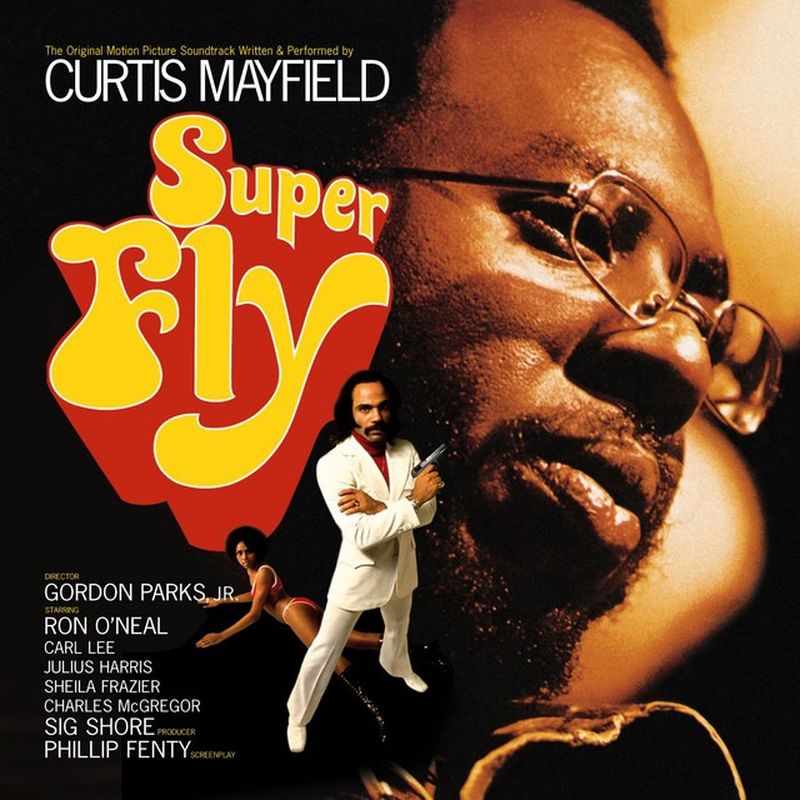
Curtis Mayfield crafted a soundtrack that outshined the movie it was meant to support—like hiring Beyoncé to perform at a backyard barbecue and wondering why nobody’s watching the grill. “Freddie’s Dead” and “Pusherman” turned drug dealing into social commentary wrapped in irresistible grooves, making the album more culturally significant than Ron O’Neal’s film could ever dream of being.
Mayfield’s genius lay in creating music that celebrated and criticized simultaneously, like a musical Trojan horse sneaking vegetables into candy. The soundtrack hit number one on Billboard’s pop charts while delivering lyrics sharp enough to cut through cocaine-fueled haze. Radio stations played tracks about pushers and junkies because the melodies were too infectious to resist—musical vegetables hidden in sonic candy.
10. Hell Up in Harlem (1973) – Freddie Perren & Fonce Mizell
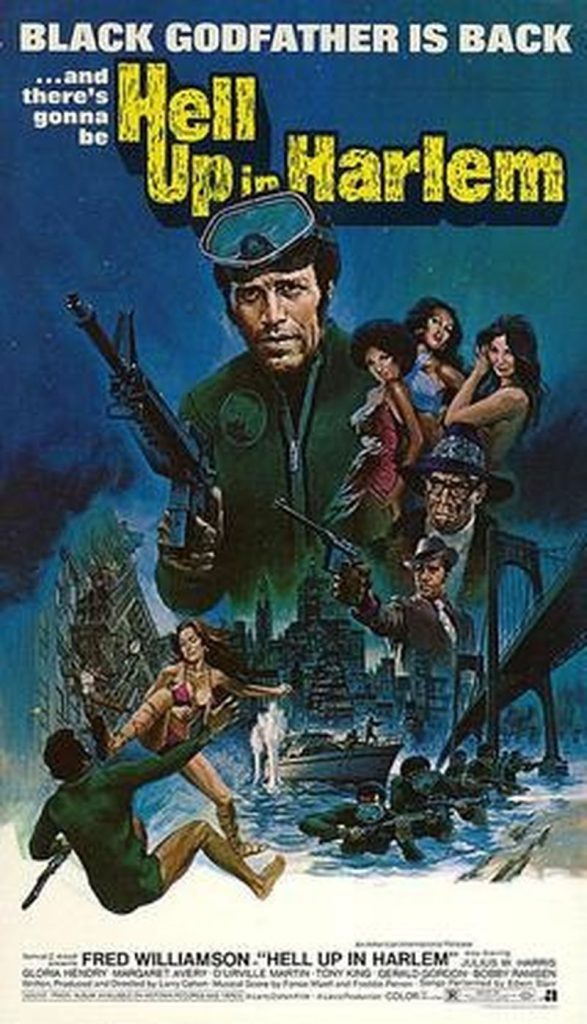
The sequel to “Black Caesar” demanded bigger, badder music, and Perren & Mizell delivered like they were scoring the apocalypse with a disco ball. Their collaboration created an urban symphony that captures Harlem’s chaos and beauty in equal measure. “No More Mr. Nice Guy” became the perfect anthem for anyone tired of playing by rules written by people who never walked these streets or felt this rhythm.
These composers understood that sequel soundtracks need to amplify everything from the original without just turning up the volume—think Netflix trying to recreate Stranger Things magic in season four. Their arrangements layer horns, strings, and rhythm sections like musical skyscrapers reaching for heaven while keeping feet planted in street reality. The result sounds like ambition set to a backbeat that refuses to quit.
9. Blacula (1972) – Gene Page
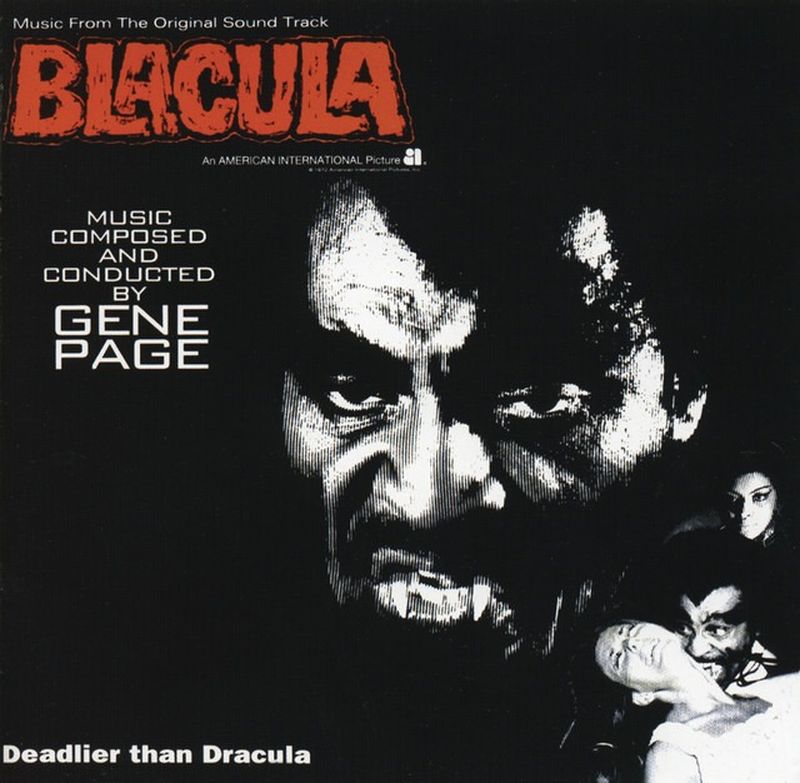
Gene Page approached vampire horror with the seriousness of a Beethoven symphony and the groove of a Motown session. His score for “Blacula” treats William Marshall’s undead African prince with orchestral dignity while delivering enough Gothic atmosphere to chill sangria at a poolside party. Page understood that even B-movie monsters deserve A-level musical treatment, especially when they’re classically trained actors slumming it for rent money.
“Blacula Theme” opens with church organ that would make Phantom of the Opera jealous, then adds strings and brass that build suspense like musical fog machines working overtime. Page’s arrangements respect both the horror tradition and the film’s cultural significance, creating music that elevates schlock into something genuinely haunting without losing the camp that makes it binge-worthy entertainment.
8. Cleopatra Jones (1973) – J.J. Johnson & Carl Brandt
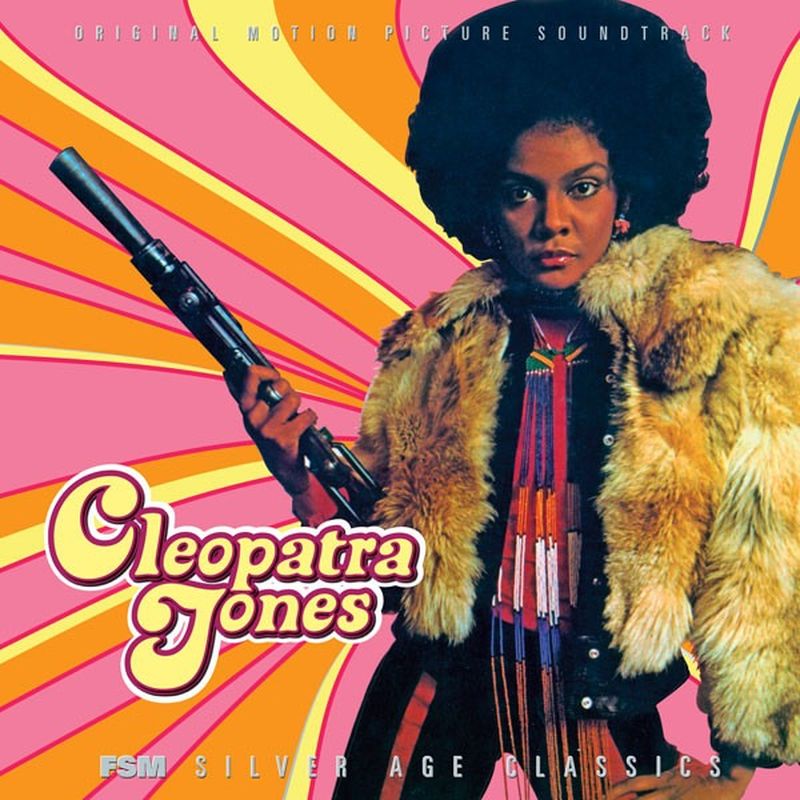
Jazz legend J.J. Johnson teaming with Carl Brandt to score Tamara Dobson’s secret agent adventure created a soundtrack that treats exploitation like high art. “Cleopatra Jones Theme” features Johnson’s trombone work floating over orchestral arrangements sophisticated enough for Lincoln Center, proving B-movies could inspire A-level musical ambition when the right talent was willing to slum it for art.
Johnson approached this assignment with the seriousness he brought to bebop sessions, creating compositions that elevate every scene they accompany like musical platform shoes. The music balances action movie requirements with jazz innovation, resulting in a soundtrack that works as both film score and concert hall material. Like finding a vintage designer piece at a thrift store—unexpected quality hiding in an unlikely place where most people weren’t looking for genius, but the melted volume knob of pure talent still shines through.
7. Friday Foster (1975) – Luchi De Jesus
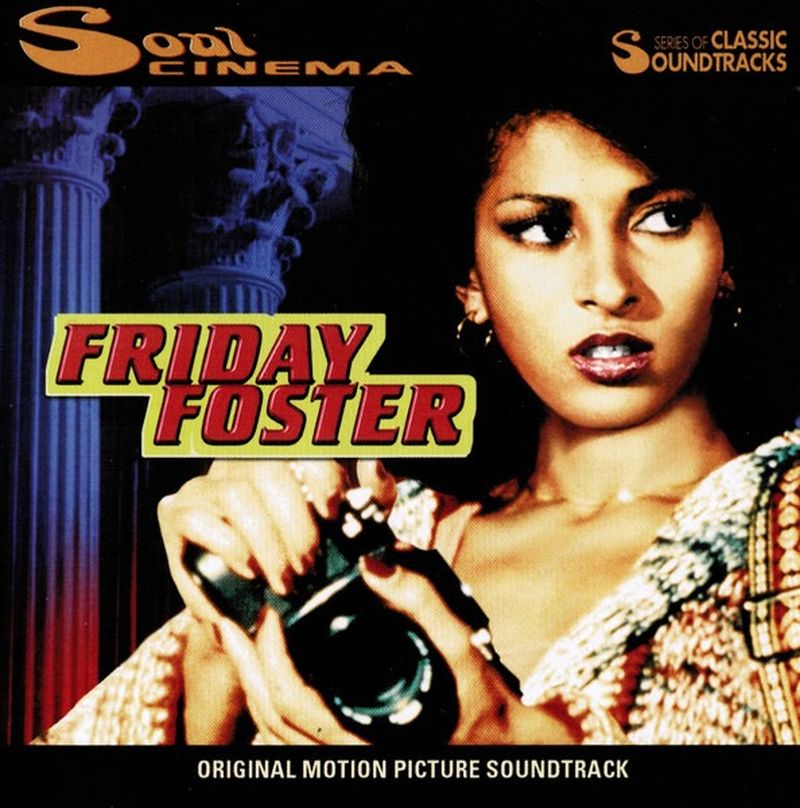
Luchi De Jesus created a jazz-fusion soundtrack that treats Pam Grier’s photographer character like a musical muse worthy of Miles Davis. “Friday Foster Theme” swings between detective noir and fashion magazine sophistication, capturing the film’s unique blend of mystery and glamour with compositions that sound like musical photography—each note perfectly framed and expertly lit.
De Jesus approached this assignment like a jazz musician scoring a fashion shoot in a darkroom full of secrets. His arrangements emphasize sophistication over exploitation, creating music that complements Grier’s intelligence rather than just her screen presence. The result sounds more like premium cable drama than grindhouse cheese, proving exploitation could aspire to elegance when the right composer was calling the shots.
6. Truck Turner (1974) – Isaac Hayes
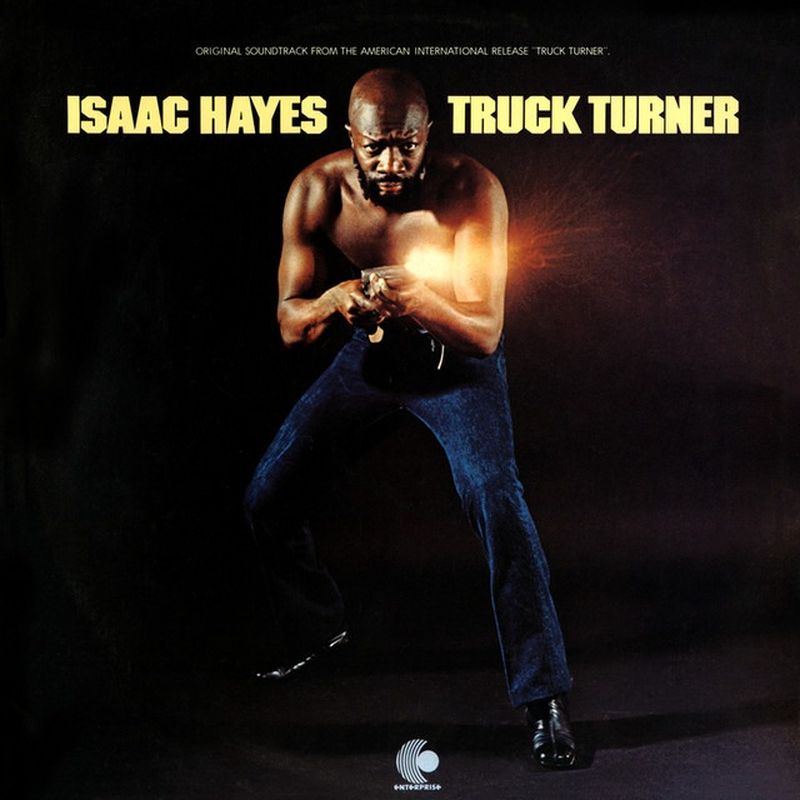
Hayes returned to score another vehicle starring himself—because the seventies were beautifully ridiculous enough that musicians could star in their own action flicks without anyone questioning the logic. His second exploitation soundtrack proves the first wasn’t a fluke, delivering “Pursuit of the Pimpmobile” and other tracks that sound exactly as wild as their titles suggest, like someone decided to set a car chase to music and forgot to pump the brakes.
The score balances Hayes’ orchestral ambitions with pure funk necessities that keep feet moving and hearts pumping. “Truck Turner Theme” builds tension like a musical car chase, while “House of Beauty” captures the seedy glamour of Hayes’ underworld with strings that shimmer like neon lights. This soundtrack works as both film score and standalone funk masterpiece—a double threat that few composers could pull off without breaking a sweat.
5. Darktown Strutters (1975) – David Matthews

David Matthews scored this bizarre comedy-musical-action hybrid with music as unpredictable as the film itself. His arrangements bounce between Motown pastiche, funk freakouts, and orchestral comedy cues like a DJ having a nervous breakdown at a wedding reception. “Strutters Theme” captures the film’s anarchic spirit with compositions that refuse to stay in any single genre long enough to get comfortable.
Matthews treated this assignment like musical improvisational comedy where every punchline needs a rimshot and every rimshot needs a punchline. His score supports outrageous action sequences and absurd character moments with equal enthusiasm, creating music that feels spontaneous and carefully crafted simultaneously. Anyone seeking conventional film scoring should look elsewhere—this soundtrack lives in its own musical universe where normal rules don’t apply.
4. Bucktown (1975) – Johnny Pate
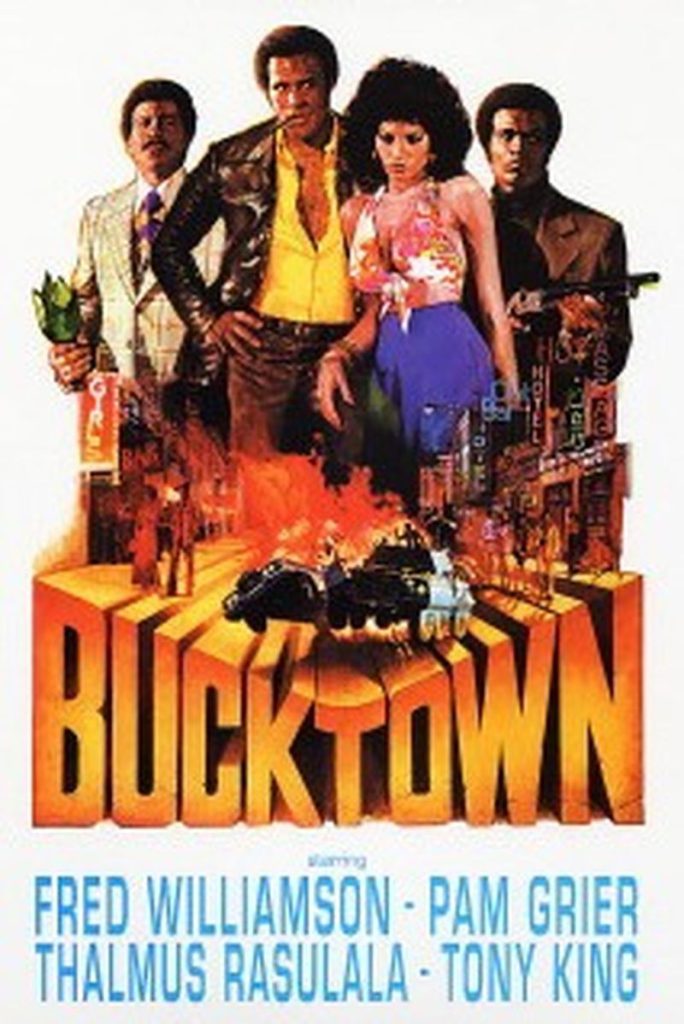
Johnny Pate scored Fred Williamson’s corrupt cop thriller with music that captures both the character’s heroism and the system’s rot. “Bucktown Theme” opens with bass lines that slither like musical corruption, building into orchestral arrangements that suggest both triumph and tragedy lurking around every corner like shadows that follow honest cops home.
Pate understood that great exploitation scores need emotional complexity beneath the surface funk that keeps audiences dancing while thinking. His compositions support the film’s political subtext while delivering enough groove to satisfy action junkies who just want their car chases properly soundtracked. The music works as social commentary and entertainment—exactly what the best blaxploitation soundtracks achieved when nobody was looking.
3. Shaft (1971) – Isaac Hayes
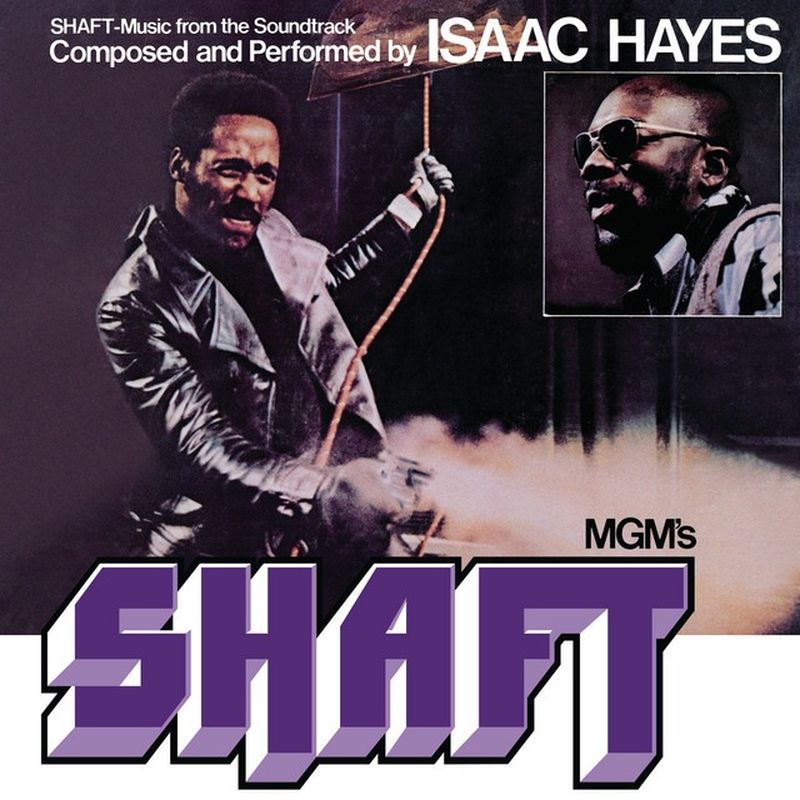
Isaac Hayes didn’t just score a blaxploitation flick—he rewired how movie music could swagger. That opening theme hits like liquid confidence poured over a funk bassline, transforming Richard Roundtree’s detective into the coolest cat to ever grace a movie screen. Hayes became the first Black composer to win an Oscar for Best Original Song, proving exploitation cinema could birth legitimate classics that made the Academy sweat.
The nearly 20-minute title track stretches like a jazz odyssey that refuses to apologize for taking up space. Hayes recorded it with rich orchestration that creates layers thick enough to slice with a machete. Anyone who’s ever strutted to this beat knows normal walking becomes physically impossible afterward—the musical equivalent of a swagger upgrade that can’t be uninstalled.
2. Foxy Brown (1974) – Willie Hutch
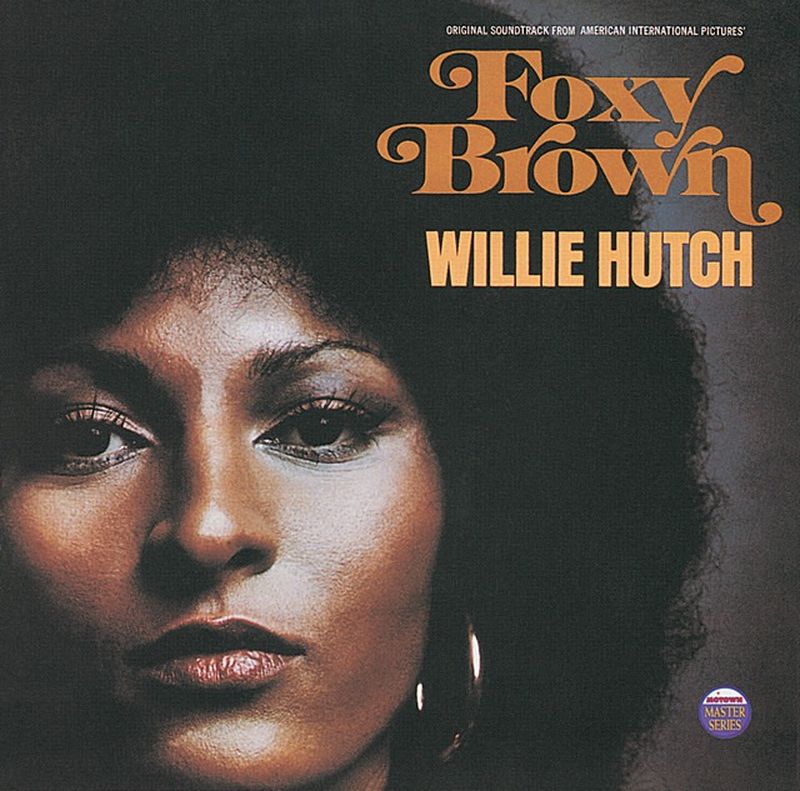
Willie Hutch created a soundtrack that matched Pam Grier’s screen presence—bold, unapologetic, and impossible to ignore. “Theme of Foxy Brown” opens with guitar licks sharper than Grier’s stiletto heels, building into an orchestral celebration of Black female power that still sounds revolutionary fifty years later, like finding a feminist manifesto hidden in a funk song.
Hutch understood the assignment perfectly: create music worthy of cinema’s most badass heroine. His arrangements blend soul, funk, and orchestral flourishes like a musical molotov cocktail designed to amplify Grier’s every move. The title track became a template for empowerment anthems, inspiring everyone from hip-hop producers to Tarantino soundtracks decades before anyone knew who Tarantino was.
1. Three the Hard Way (1974) – The Impressions
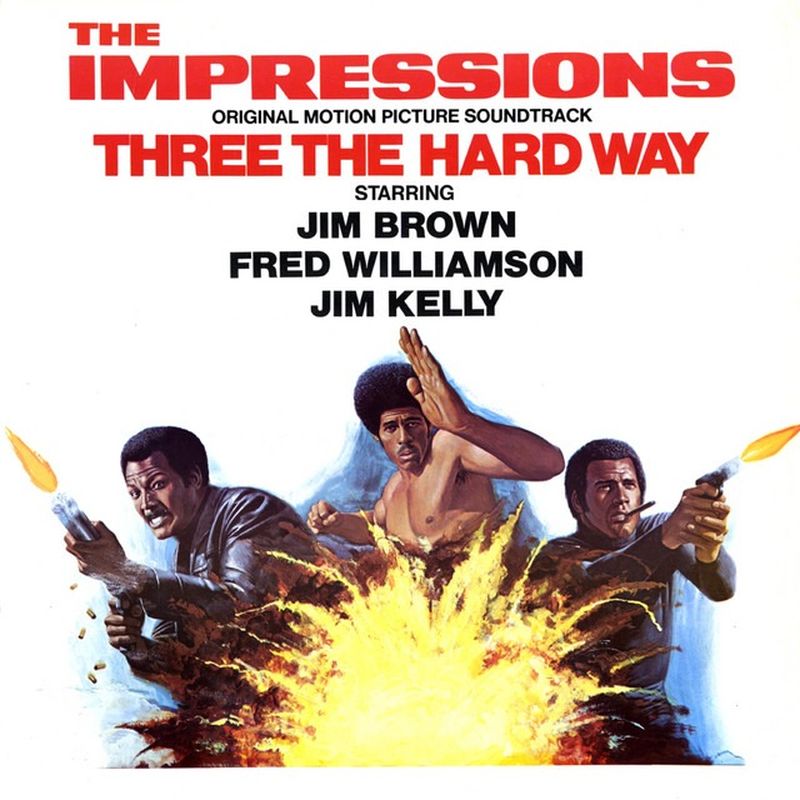
The Impressions scoring an action flick starring Jim Brown, Fred Williamson, and Jim Kelly sounds like someone’s fantasy football team for seventies coolness. “It’s All Right” transforms Curtis Mayfield’s earlier hit into an action anthem that punches harder than any of the stars on screen, while new tracks capture the film’s buddy-cop-meets-vigilante-justice vibe with harmonies smoother than aged whiskey.
Without Mayfield leading the charge, The Impressions still delivered music that punches above its weight class like a featherweight taking down heavyweights. Their harmonies add emotional depth to gunfights and chase scenes, proving great vocal groups could adapt to any genre without losing their soul. The soundtrack works as both action score and soul album—versatility that few artists could manage without splitting personalities.




